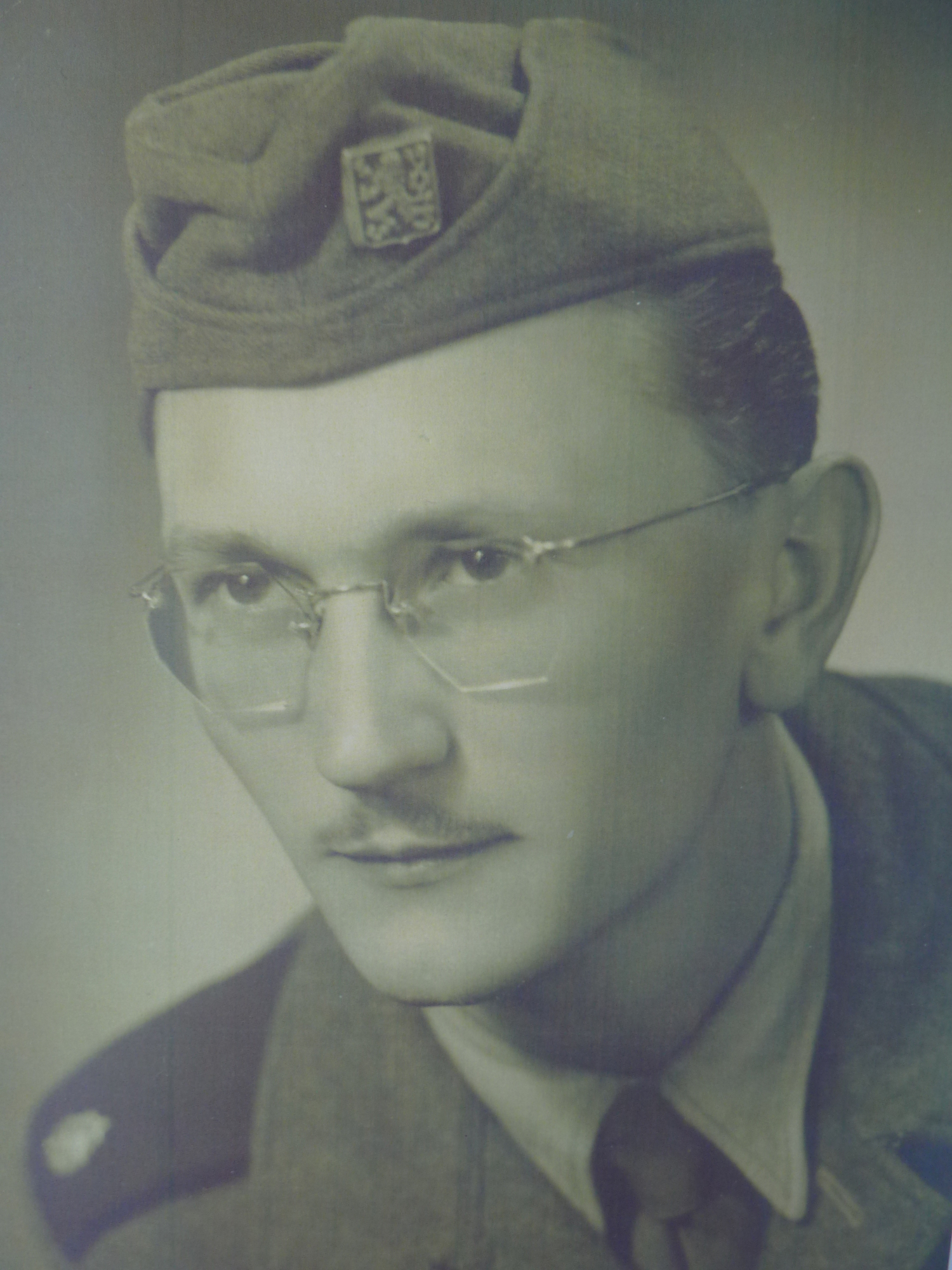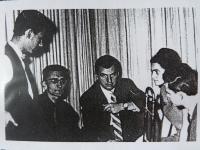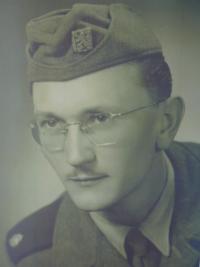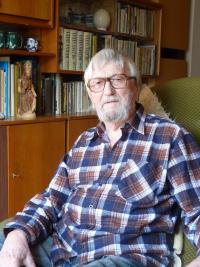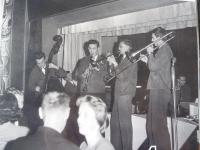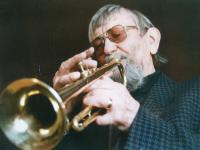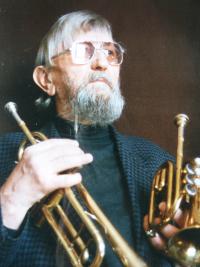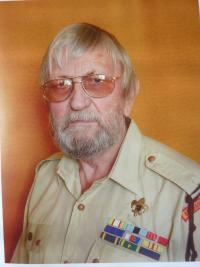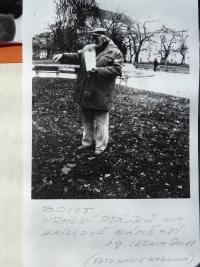As an artist I was giving back what Scouting has generously given me
Vladimír Pechar (Pluto) was born January 19, 1931 in Příbram. On May 23, 1938 he joined the Junák (Boy Scouts) in Příbram and in 1945 he renewed his membership. He was serving as the unit secretary since that time. In 1947 he began studying grammar school in Příbram and in 1951 he graduated. After graduation he went to work as a draftsman in a factory, and a year later he was admitted to the technical school of geology. After completing his studies, he began working as a geologist in the uranium mines. He married in 1954. In the same year, he began his military service and his son was born a year later. His marriage however ended soon after his return from the army. Vladimír managed to get a job in the Central Geological Institute in Prague and at the same time he continued studying. He became acquainted with Jaroslav Foglar during that time. In 1960 he married for the second time and their son Radek was born three years later. Their marriage lasted until his wife Milada‘s death in 2007. In 1968 he became a member of the organization council in the Junák headquarters and he joined the unit Platan, where he still continues as a member. In 1968 he was appointed to Svojsík‘s troop. As the only artist in the headquarters, he was entrusted with creating all artwork for Junák. In 1968 he quit working in the Institute and became a journalist. He started writing articles and later began to develop fine arts and music. After the Velvet revolution in 1989 he renewed his membership in Junák and for another six years he worked in the organization council of Junák before retiring from this function. He is still active as a Scout.
